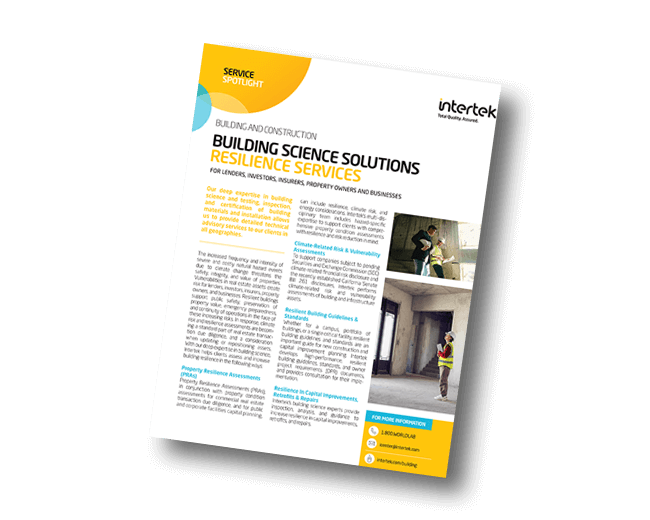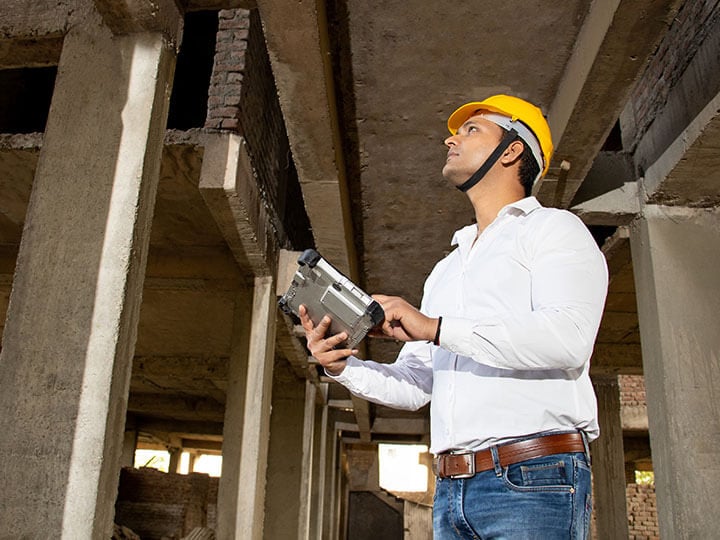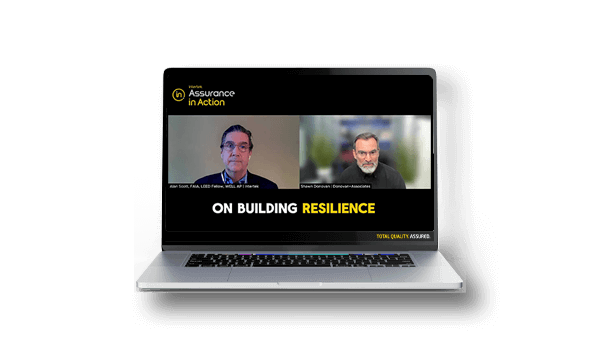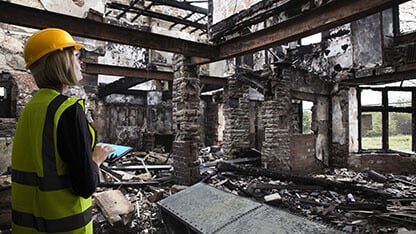Leveraging Expertise to Mitigate Climate Risk and Enhance Property Resilience
Climate change presents a significant and evolving challenge to businesses and the real estate industry. The increasing frequency and intensity of severe weather events, such as hurricanes, floods, and wildfires, threaten the safety, integrity, and value of properties. These risks extend to all stakeholders, including the investors, building owners, developers, architects, engineers, and contractors who service the properties.
Consequently, climate risk and resilience assessments are becoming essential elements of real estate decision-making. Whether you're conducting due diligence for a transaction, updating an existing building, or planning new construction, understanding your property's vulnerabilities and taking proactive steps to enhance resilience is crucial.
What Does It Mean for a Building to be Resilient?
Resilience goes beyond simply enduring challenges. It's the ability to withstand disruptive events and bounce back quickly. When applied to our built environment – buildings, infrastructure, and cities – resilience encompasses three key principles:
- Safety First: A resilient building prioritizes the safety of its occupants during and after a disruptive event, such as a natural disaster or power outage.
- Minimize Damage: The building's design and construction should limit damage sustained during an event. This allows for quicker and less costly repairs and a faster return to normal use.
- Rebound Quickly: Resilient buildings are designed to support the continuity of operations. Even in the face of significant disruptions, such as power outages, the goal is to resume normal activities as soon as possible. This is especially important for institutions like schools and workplaces to minimize economic and service disruptions.
Intertek's Services in Building Resilience
When it comes to building resilience, Intertek is a trusted partner with a proven track record of helping clients assess and enhance their building's ability to withstand natural hazards and climate challenges. This translates to significant benefits, such as limiting risk, reducing maintenance and repair costs, and increasing occupant comfort and safety. Our team of specialists in building science, engineering, and environmental science understands the effects of natural elements on building design, particularly building enclosures. This expertise is available through our consulting services that can help you create more resilient structures built to resist these external forces.
Intertek offers a comprehensive suite of services designed to address your specific needs:
- Property Resilience Assessments (PRAs): Intertek's PRAs take a close look at your entire building, from the roof to the foundation, inside and out. Often conducted in conjunction with Property Condition Assessments (PCAs), this comprehensive assessment seeks to identify potential problems that could arise from current and future natural hazard and climate events, and other physical risks. With a PRA, you will receive a customized plan specifically for your property that outlines steps you can take to address weaknesses and make your building more resilient. By following these recommendations, you'll be taking proactive steps to safeguard your investment and ensure your property remains valuable for years.
- Climate-Related Risk and Vulnerability: Intertek's climate risk assessments can help you navigate this evolving landscape. We conduct thorough evaluations of buildings and infrastructure, examining them for vulnerabilities that could arise from climate-related threats. This includes things like extreme weather events, flooding, or changes in temperature and precipitation patterns. The data gathered through these assessments equips you with the information to make informed decisions. You will be able to identify potential risks and take proactive steps to mitigate them, ensuring the long-term safety and sustainability of your investment.
- Resilient Building Guidelines and Standards: Incorporating resilient building principles is key when it comes to new construction or major renovations. Intertek can help you do so by developing high-performance, climate-resilient building guidelines, standards, and owner-project requirements (OPRs) documents that prioritize building resilience. Our consultation services are tailored to help you successfully implement these guidelines, ensuring effective risk-reduction strategies are integrated into your building, protecting your investment for the long run.
- Capital Improvements, Retrofits, and Repairs: Targeted improvements can significantly enhance the resilience of existing buildings, and Intertek plays a crucial role in this process. By offering thorough inspection, analysis, and expert advice, Intertek assists in protecting buildings against various risks and challenges. Whether through capital improvement projects, retrofits, or repairs, Intertek provides the necessary expertise to identify vulnerabilities and implement effective resilience strategies. This proactive approach not only helps protect your assets but also contributes to creating a safer, more sustainable built environment for communities.
Intertek's deep expertise in building science and testing, inspection, and certification of building materials and installation allows us to provide detailed technical advisory services to our clients in all geographies. Learn more about our Resilience Services
New Regulations Consider Climate Risks
As a growing number of worldwide regulations emphasize building resilience, organizations must now assess the potential impact of climate change on their operational and financial performance.
These regulations are based on frameworks like the Task Force on Climate-related Financial Disclosures (TCFD). The European Union, Canada, and New Zealand have already implemented TCFD-based rules. In March 2024, the U.S. Securities and Exchange Commission adopted final rules requiring U.S. and foreign registrants to include extensive climate-related information in their registration statements and periodic reports. Starting in 2026, California's Senate Bill 261 will require all companies doing business in California with annual revenues exceeding $500 million to publicly disclose their climate-related financial risks in accordance with TCFD. This is significant because it impacts a broad range of companies, and the interconnectedness of business means even those not directly subject to the regulation could be affected.
ASTM International recently introduced ASTM E3429-24, the Standard Guide for Property Resilience Assessments (PRAs). This voluntary guide helps property owners, architects, engineers, and insurers evaluate potential hazards and implement proactive measures that strengthen commercial and residential properties against natural hazards and climate risks while extending their longevity.
Benefits of Intertek's Resilience Services
Intertek helps building owners and developers, architects, engineers, and contractors across the real estate industry make informed decisions about climate risk and building resilience.
Our expertise and services can improve your property management and investments by:
- Increasing safety by helping to ensure buildings can withstand natural hazards, protect occupants, and reduce the risk of damage or injury.
- Preserving property value by addressing weaknesses and incorporating preventive measures.
- Enhancing emergency preparedness by enabling organizations to respond more efficiently and effectively to natural hazards while also minimizing any disruptions.
- Ensuring continuity of operations for businesses and critical buildings by minimizing downtime and financial losses during challenging events.
Intertek's extensive building science knowledge and innovative services enable clients to evaluate and improve the resilience of their buildings. By incorporating climate risk and resilience factors into their real estate financing and investment strategies, we can build structures that go beyond keeping people safe. We can create buildings that enable businesses and communities to recover and thrive in the face of challenges.
Protect Your Assets
Don't let climate risks compromise your property's future. Partner with Intertek to create a resilient building that stands the test of time.
Intertek is your trusted partner for healthy building solutions, supporting you in achieving your aspirations for high-performing, sustainable buildings. We guide you through Property Resilience Assessments and partner with you to achieve LEED® and WELL certifications for a healthier, more efficient building. Contact Intertek today to discuss your green building project.
Knowledge Center
Building Health & Wellness: An Overview of Services
Acoustical Testing & Consulting Resources
Remote Pre Inspections for NFPA 80 / 101
Protek - Safety. Everywhere. Every Day
Fire Doors 101: Your Guide to Testing and Certification - Webinar Recording
Tornado Testing & Certification Requirements - Webinar Recording
Plumbing Products Testing & Certification - Webinar Recording
The Evolving Code Evaluation Process White Paper
Proposition 65 & the Furniture Industry Webinar Recording
Why Planning for FCC Certification is Key to Success in the Door Hardware Industry White Paper
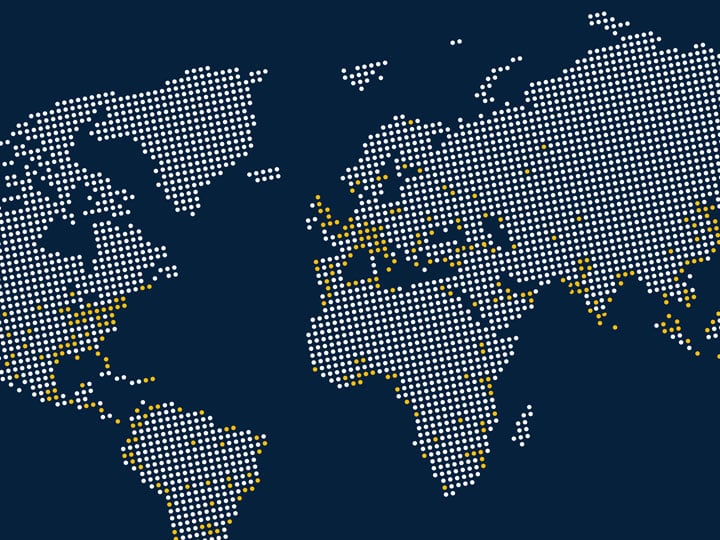
Upcoming Tradeshows & Events
Resources
- Search and Buy Building & Construction Standards
- SpecDirect
- Building Products Directory
- Project Connect (formerly myATI) – B&C Products
- Construction Hive – B&C Projects (PSIQest)
- My TestCentral

